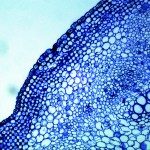Link to Pubmed [PMID] – 20028207
J. Interferon Cytokine Res. 2010 Feb;30(2):89-98
The type I interferon (IFN) receptor consists of two transmembrane chains IFNAR1 and IFNAR2, associated with the tyrosine kinases Tyk2 and Jak1, respectively. Binding of IFN to this receptor complex induces activation of Jak/Stat and non-Stat signaling pathways. Ligand binding also drives receptor internalization and sorting toward degradation or recycling. To gain insights into receptor trafficking and its relation to signaling, we performed subcellular organelle fractionation from IFN-stimulated Daudi cells and defined biochemically an early endosomal antigen-1 (EEA1)-positive compartment bearing the activated IFN receptor. Endosomes were thus purified by immunoaffinity isolation on anti-EEA1 antibodies-coated beads. The content of these purified endosomal fractions was analyzed by Western blot and proteomics. Shortly after IFN stimulation, robustly ubiquitinated IFNAR1 and a small amount of IFNAR2 were found in this endosomal compartment, which also contained tyrosine-phosphorylated Tyk2 and Jak1. These data strongly point to the prolonged interaction during traffic of the tyrosine kinases, still in an activated configuration, with the receptors. Among the major constituents of this EEA1-positive compartment, some proteins that have been implicated in IFN signaling were identified. Altogether, these observations suggest that trafficking of the IFN receptor through endosomes may regulate signaling pathways.

